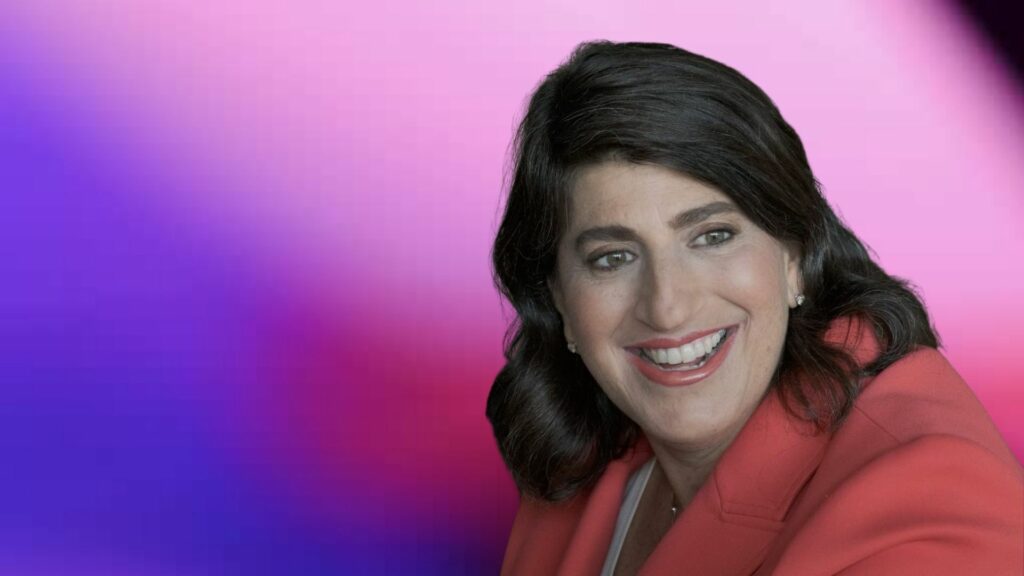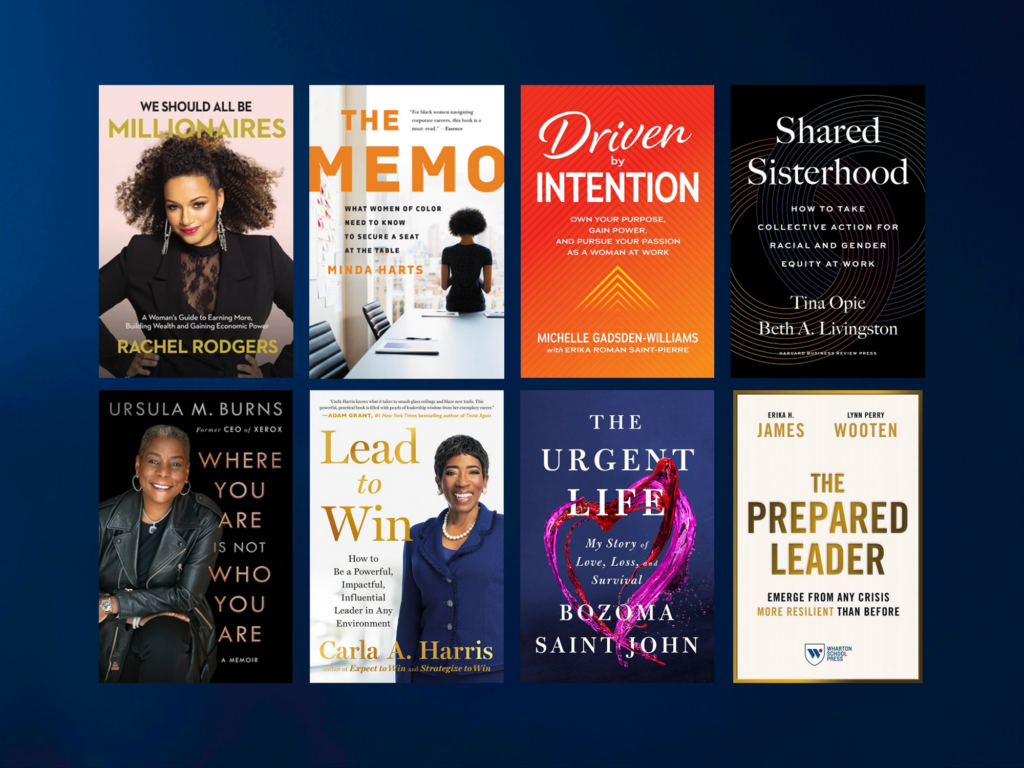Empowering change: women MBA leaders to watch on National Nonprofit Day

Everyone holds a cause close to their heart – whether it’s combating food insecurity, supporting military families, seeking cures for rare diseases, or championing sustainability. Our individual experiences shape our aspirations for personal growth, our desire to contribute, and our commitment to something greater than ourselves. This innate need to make a difference forms the cornerstone of our journey.
An MBA journey is often synonymous with personal development and achievement. Conversations revolve around post-grad professional strides: grand promotions, substantial salary leaps, and upward mobility. Undoubtedly, the drive to enhance diversity and representation in top-tier leadership has never been more crucial. We invest in our academic and professional pursuits, not only to elevate ourselves but also to enrich the world around us.
For some MBAs, however, the path takes an inspiring turn towards nonprofit careers. These determined individuals take the foundations of their degrees and extend them, fully immersing themselves in a multifaceted domain. Here, they channel their business acumen, pushing their limits to bring about enduring change within various pressing concerns and marginalized communities. The nonprofit sector is witnessing unprecedented growth, employing over 10% of America’s private workforce – a figure surpassing even manufacturing, construction, or finance.
In the realm of global development, numerous nonprofits advocate for women’s empowerment and gender parity. Surprisingly, while women constitute over 70% of the American nonprofit workforce, the leadership landscape remains predominantly male, Nonprofit Quarterly reports. While women thrive in staff roles, particularly in development and fundraising, the upper echelons of directors and executives are predominantly occupied by men. In a broader context, around 45% of all nonprofits have women in executive positions.
Every year on August 17, National Nonprofit Day takes center stage, amplifying the ceaseless endeavors of these organizations in serving their communities. Across the nation, 12.3 million individuals are employed by nonprofits, joined by over 64 million board members and volunteers.
Contrary to the widespread belief, the “typical” nonprofit is intrinsically community-based, addressing local needs. Astonishingly, 97% of nonprofits operate within budgets of less than $5 million per annum, with 92% managing with under $1 million, and 88% functioning on budgets less than $500,000 yearly, as affirmed by the National Council For Nonprofits. Furthermore, according to the Giving USA 2021 Annual Report, Americans collectively contributed $499.33 billion in 2022, marking a 3.4% decline from the previous year.
In honor of National Nonprofit Day, MBAchic is turning the spotlight on six dynamic MBA-led nonprofits. These organizations are at the forefront, battling challenges spanning climate change and housing instability to reproductive healthcare access and resources for cancer survivors. The narratives of these inspirational leaders will illuminate their journeys and the wisdom they’ve gleaned along the path. Their stories serve as a guidepost for the next generation of MBA change-makers, poised to carve their own transformative routes within the nonprofit landscape.
National Nonprofit Day with Jenna Nicholas of Impact Experience
Founder: After graduating from Stanford University with an honors degree in International Relations, Jenna Nicholas returned in 2015 with the help of the P.D. Soros Fellowship which enabled her to complete an MBA at Stanford’s Graduate School of Business. During business school, she co-founded Impact Experience to partner investors with marginalized communities to co-create solutions. Her goal? Economic and racial justice for a better and more sustainable world. Nicholas says one of the most fulfilling aspects of her work is witnessing the tangible transformation in both behavior and mindset.
“We’ve been elated to observe numerous individuals (post their experiences with us) make decisive shifts in capital allocation, aligning more closely with diversity, equity, and inclusion principles and ESG (Environmental, Social, Governance) criteria,” Nicholas explains. “These are not just numbers or trends for us, they signify real impact. They reflect an evolving understanding and an ability to see past inherent biases to recognize true value.”
About Impact Experience: From post-hurricane rebuilding efforts in New Orleans, Houston, and Puerto Rico, to workforce training programs in former coal economy-driven communities in West Virginia, Impact Experience is focused on partnering with underserved communities. Helping people of color and women-run businesses build capital, and supporting sustainable agriculture and climate practices is a yearlong effort which the Impact Experience team takes pride in – but it’s not without unique challenges. In her journey of founding and nurturing Impact Experience, Nicholas tells MBAchic one of the most significant challenges has been navigating the creative tension that exists between some of the world’s largest private equity funds and marginalized communities.
“These two entities, on the surface, can seem worlds apart, both in vision and objective,” Nicholas says. “However, it’s precisely this tension that offers a fertile ground for profound transformation. By focusing on the shared humanity and wisdom inherent in both groups, we’ve been able to foster meaningful collaboration and partnerships. Overcoming this challenge requires patience, listening deeply, and constantly reminding ourselves of the shared humanity that binds us all.”
Her Top Advice: Looking back on her journey, a pivotal piece of wisdom Nicholas says she wishes she understood from the outset is the patience required in building a solid foundation for a nonprofit.
“It can often take several years to reach a critical mass, find the right product-market fit, and expand the team to a scale where the business model becomes financially resilient,” Nicholas shares. “In the early days, there was enthusiasm to drive rapid change, but sustainable impact requires a blend of perseverance and strategic growth.”
National Nonprofit Day with Deidra Mwalimu of NOW
Founder:
With an MBA and a Masters Degree in Nonprofit Administration, Deidra Mwalimu has been dedicated to the field of international development and non-profit administration for more than 15 years. Currently, Deidra is the grant writer at a local university while simultaneously running Network of Women NOW as the founder and CEO. Amidst all the hard work and dedication, Mwalimu says the experiences that bring her the most joy and fulfillment come from witnessing the positive impact of her team’s efforts on individuals and the community as a whole.
“Seeing the lives of those we serve improve, witnessing empowerment and growth in individuals, and receiving gratitude and appreciation from beneficiaries can be deeply rewarding,” she explains. “Additionally, successful collaborations with other organizations, milestones achieved in their projects, and the sense of camaraderie among team members working toward a common goal bring great satisfaction and joy.”
About Network of Women NOW: Network of Women NOW’s global community is a space for women to network, share ideas, create collaborative partnerships, and develop economic opportunities that better their lives and the communities that they live in. Incorporated in 2020, Network of Women NOW works to assist young girls and women by donating feminine hygiene products and spreading education through individual contributions, donation drives, fundraising events, and partnerships, this nonprofit gathers much needed supplies, delivering them to schools, community centers and similar organizations. The nonprofit has three main initiatives: combating period poverty, increasing menstrual equity, and networking. Mwalimu says some of the most significant challenges she has faced while creating and running her nonprofit have been fostering inclusivity and diversity, securing sustainable funding, building a supportive community, and overcoming social barriers. To address these issues, Network of Women NOW actively seeks multiple funding sources, leverages social media for community engagement, and advocates for gender equality and women’s empowerment through awareness campaigns and collaborative initiatives.
Her Top Advice: Mwalimu says a valuable piece of advice for anyone starting a nonprofit would be to prioritize building a strong and diverse network of supporters and collaborators from the outset.
“Cultivating relationships with individuals, organizations, and stakeholders who share a passion for the cause can provide invaluable support, resources, and expertise,” Mwalimu says. “Networking and partnerships can open doors to funding opportunities, amplify my organization’s message, and create a more sustainable and impactful operation. Building a supportive community can significantly contribute to the success and growth of the nonprofit over time.”
National Nonprofit Day with Jackie Cromity of Survivor Friendly
Founder: Jackie Cromity knows firsthand that cancer doesn’t discriminate against age, race, or gender identity, and it certainly doesn’t press pause on jam-packed personal or professional lives. For Jackie who was initially diagnosed in 2013, her third cancer diagnosis came as she was busy raising her two children, overseeing a global team in a senior management role at Cisco, and tackling a challenging course load while finishing her Jenkins MBA degree. She found support in her faith, family, professors and manager, who she disclosed her diagnosis to in confidence. Vowing to reduce the number of breast cancer patients faced with confusing insurance claim issues, a lack of resources and support, in 2018 she decided to create the solution she had been looking for and Survivor Friendly was born.
About Survivor Friendly: Survivor Friendly acts as a one-stop-shop for cancer patients and survivors designed to meet individual needs with grace to help survivors overcome everyday challenges in an uplifting, modern, and friendly environment. Cromity says the moments that bring the most joy and fulfillment to her and her team include personal stories of impact, community engagement, and success stories. “Hearing firsthand accounts of how our programs have positively affected survivors’ lives is heartwarming,” Cromity says. “Witnessing their resilience and transformation drives us to continue our mission more determinedly.” Engaging with the local community during Survivor Friendly events, workshops, and support groups also creates a sense of unity and shared purpose. “Seeing survivors and their families connect and support one another reinforces the importance of our work,” Cromity reflects. “Celebrating milestones, such as survivors’ successful reintegration into society or their pursuit of new opportunities, reminds us of the positive change we are facilitating.” Today, Survivor Friendly has six different locations where people can find durable medical equipment (DME), quality-of-life essentials, breast cancer education and support. Affiliated with Duke Cancer Institute and Novant Health, Survivor Friendly is a testimony to Jackie’s passion for turning her own challenges into other people’s strengths.
Her Top Advice: When her team first started, Cromity says she wishes she had known the immense value of diversifying her revenue streams and building a business model that supports her mission while ensuring financial stability.
“While grants are a crucial source of funding, incorporating a sustainable revenue-generating component into our nonprofit’s operations has been instrumental in our ability to expand our impact,” she explains.
Additionally, she says she cannot stress the importance of establishing a network of mentors, advisors, and fellow nonprofit leaders who can offer guidance, share experiences, and provide valuable insights.
“Their expertise can help navigate challenges and accelerate the growth of your organization. In conclusion, the Survivor Friendly Foundation’s journey has blended challenges, triumphs, and heartwarming moments,” she says. “The dedication of our team, the resilience of survivors, and the community’s unwavering support continue to drive our mission forward. If you have any questions or want more information, please reach out.”
National Nonprofit Day with Kathy Ku of SPOUTS Impact
Founder: At Harvard University, Kathy Ku pursued her bachelor’s degree in molecular and cellular biology and her master’s in engineering. During her first summer break, she traveled to Uganda to teach a health course at an all girls’ academy focused on pregnant mothers. While living with a host family that often fell sick to waterborne illnesses, she was inspired to design a water filter that would be affordable, effective and socially accepted. As a result, she started the social business SPOUTS of Water LTD in 2011 to manufacture ceramic water filters in Uganda. Recognizing that purchasing a filter was still out of reach for some communities, the nonprofit, SPOUTS Impact was formed in 2017 to serve Uganda’s most vulnerable communities with clean drinking water, and Ku currently serves as an acting board member. She admits that the transition from being on the ground full-time to being a board member (not-involved in the day-to-day) was a really difficult one. “Thankfully, I was able to surround myself with other board members from diverse backgrounds and expertise who have been instrumental in this process,” Ku says. “We’ve also just hired an amazing person on the ground as well, and I can’t speak highly enough of the executive coach I worked with in the initial transition period.”
About SPOUTS Impact: With a mission to assist communities that lack access to safe drinking water, sanitation and hygiene education with sustainable solutions so they can thrive, SPOUTS Impact provides locally-produced household ceramic water filters (called “Purifaaya”) and hand washing stations to vulnerable communities, such as refugee settlements. The long-lasting filters eliminate all disease-causing organisms from the water, providing safe and clean drinking water. The SPOUTS team also conducts extensive training with beneficiaries to ensure proper usage and maintenance. With over 23,000 filter installations completed to date, 208,000 beneficiaries have been directly impacted. However, when factoring the number of people that are served by health centers and places of worship, the SPOUTS Impact team estimates that over 650,000 people have access to clean drinking water through their installations. Ku says seeing SPOUTS Impact water filters functioning the way they were designed to is what brings her the greatest joy. “In unexpected places, it’s been rewarding to see the use of our filters become more widely adopted and in expected places, we know we helped place them there knowing that we would be best equipped to help provide clean drinking water for communities who would have otherwise not been able to afford them,” says Ku.
Her Top Advice: Reflecting on her nonprofit journey, Ku says she wishes she had known how important community would be.
“Whether it is surrounding yourself with a community of other organizations/people who are dedicated to similar causes or to better understand the nuances of community needs,” Ku emphasizes. “Intellectually, I knew this, but in the daily operations, I think there were times that I would get bogged down on the tasks that needed to be completed and would sometimes fail to see the forest for the trees.”
National Nonprofit Day with Gaia Calcaterra of The Gratitude Project
Founder: In 2015, Gaia Calcaterra’s life took a remarkable turn during a trip to Nkomazi, where she was visiting a friend working closely with children orphaned by AIDS and cholera. The experience left an indelible mark, prompting her to embark on a new path. Upon returning to South Florida, she made a decision – immediately enrolling in Nova Southeastern University’s MBA program in Davie.
That’s where the seeds of The Gratitude Project were sown. It wasn’t just a passing idea; it became the star of her MBA term paper. Recalling those initial stages, Calcaterra shared with NSU, “I put together a six-month plan, breaking it down into financials, competition, and demographics.” Their exploration kicked off with a fascinating discovery – the most generous donors happened to be none other than Baby Boomers, particularly the female ones. As Calcaterra put it, “Surprisingly, it was Baby Boomers, and specifically, female Baby Boomers.” A chance visit led to a transformative journey, ultimately giving birth to a meaningful nonprofit.
About The Gratitude Project: The Gratitude Project is on a noble mission to shed light on and provide sustained support for Child-Headed Households in Nkomazi, South Africa. In a community already grappling with numerous challenges, the children in these households face even more acute vulnerabilities. Tragically, their deceased parents had entered South Africa as undocumented refugees, leaving behind children without valid identification. Consequently, these young souls remain invisible to any government system, rendering them ineligible for crucial aid, including access to education and medical services. Compounded by their own HIV-positive status, often contracted at birth, these children bear an immense burden. Strikingly, they not only care for younger siblings but also shoulder the responsibility of aging grandparents, all while grappling with the absence of any income source.
National Nonprofit Day with Jasmine Burton of Wish for WASH
Founder: Before graduating from the Georgia Institute of Technology’s (GT) School of Design with a Bachelor’s of Science in Industrial + Product Design, Jasmine Burton founded Wish for WASH, a social impact startup intended to bring innovation to sanitation. Burton received her accelerated MBA from Emory University’s Goizueta Business School. She says the one-year program allowed her to dive back into school, emerge from quarantine and build a community with an intimate cohort of impact-minded and value-based business professionals. “As a hybrid professional with deep roots in the Impact economy as a nonprofit founder, social entrepreneur and global health consultant, I loved how many MD/MBAs, MPH/MBA and practicing physicians were in our cohort,” Burton says.
About Wish for WASH: A reminder that everybody poops but not every person, community, or organization in the world has somewhere to safely and hygienically get poop and pathogens away from people – Wish for WASH is a social impact startup intended to bring innovation to sanitation. Over the past eight years, the W4W team has collectively reached 350,000+ people globally with their innovative WASH research, design and education products, programs and projects. As a Georgia Tech affiliated organization that promotes innovation in STEM and WASH (water, sanitation and hygiene) related work, W4W and the Chen Lab at Georgia Tech have joined forces for a collaborative research project. Their new goal is to prototype an UASB bioreactor that takes in wastewater as influent, and produces an energy-rich biogas and renewable fertilizer for crops for smaller towns and areas that are not reliably connected to sanitation systems.
Her Top Advice: “I have learned to say “yes and” to new opportunities which have led to a diverse and thriving career ecosystem that I am excited to continue building in my post-MBA chapter,” Burton says.
Empowering change: women MBA leaders to watch on National Nonprofit Day

Photo from Tim Marshall







